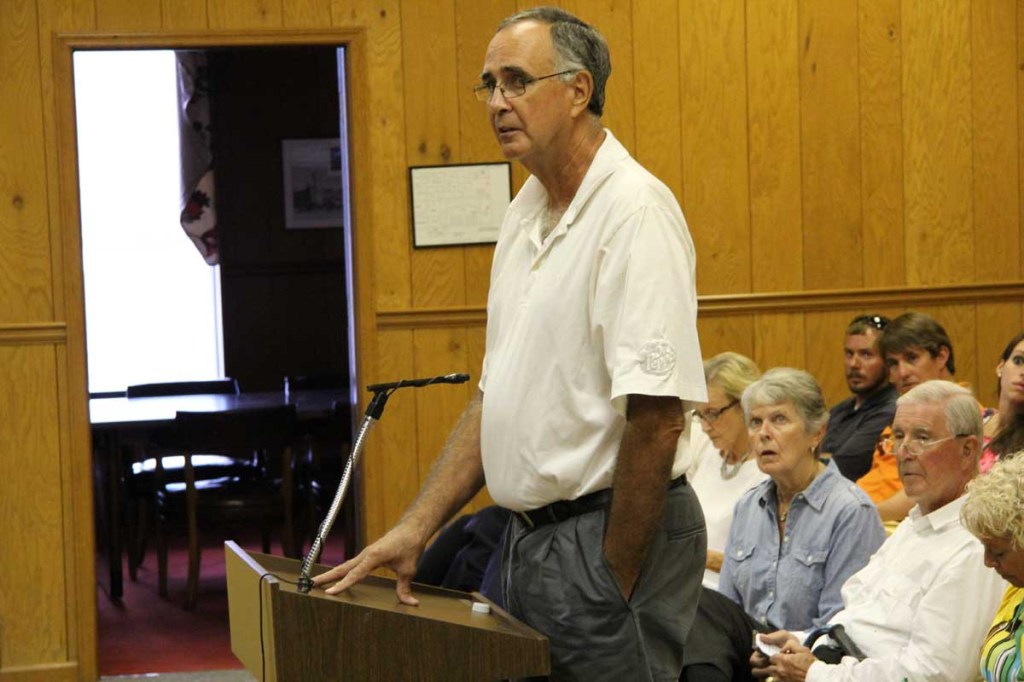City ethics code amendment ready for a vote
Published 3:17 pm Wednesday, October 22, 2014

- One of four ethics complaint filers, Jay Hodges, tells City Council there is a conflict of interest in that officials named in the complaint would appoint members to the Board of Ethics.
Milledgeville City Council Tuesday night completed the first read for an ordinance amendment to its “Code of Ethics.” The aim is to provide a method to resolve ethics complaints in the event two or more elected officials are named in a complaint or complaints arise out of the same alleged circumstance.
The amendment will be placed on Tuesday’s council meeting agenda for adoption.
See a draft of the ethics code amendment below.
The action resulted from two citizen group ethics complaints filed in August and September. The complaints allege misconduct by city councilors, the city attorney and city manager in a March City Hall gathering of officials.
The City of Milledgeville has the ethics complaints filed but no standing ethics board members to hear them and rule under the city’s code of ethics policy enacted March 27, 2012.
Objections were made against the existing ordinance as written because in this current predicament the accused would select the three-member board charged with hearing the evidence. Citizen complaint filers told city officials this wasn’t an unbiased method and requested an independent process.
The ethic code amendment to be voted on next week is the city’s answer.
Macon-based attorney Thomas Richardson advised city officials how to amend the existing code to deal with alleged ethics violations. City Attorney Jimmy Jordan isn’t serving that role for council due to a conflict of interest.
The document presented Tuesday would add a new section appointing a “Special Master” in unique complaint cases like the present.
The Special Master shall be an attorney, judge, or retired judge, residing outside of Baldwin County with no interest in the outcome of the matter to be decided, the proposed amendment reads.
Whoever the city selects will then review the complaints to determine if the allegations are sufficient enough to invoke the ethics hearing process. Any rejection by the Special Master “shall not deprive the complaining party of any action such party might otherwise have at law or in equity against the elected city official.”
For complaints not dismissed, the Special Master would establish an “orderly procedure and timetable for reach a fair and just result, including the power to conduct investigations, to take evidence and to hold hearings” to address the ethics complaint subject matter.
This individual would submit any findings to the mayor and council.
If the evidence validates a violation of the ethics code with respect to a city official, the Special Master may recommend public reprimand or censure. The official could be asked to resign as well, according to the amendment.
Still, nothing requires said officials to take any of these measures suggested, if that day comes.



